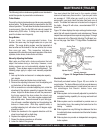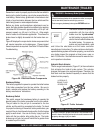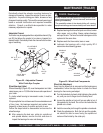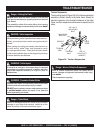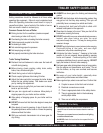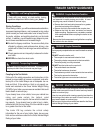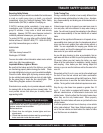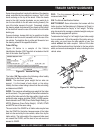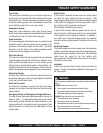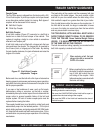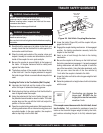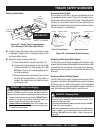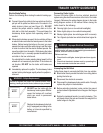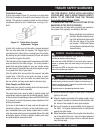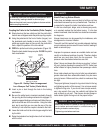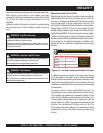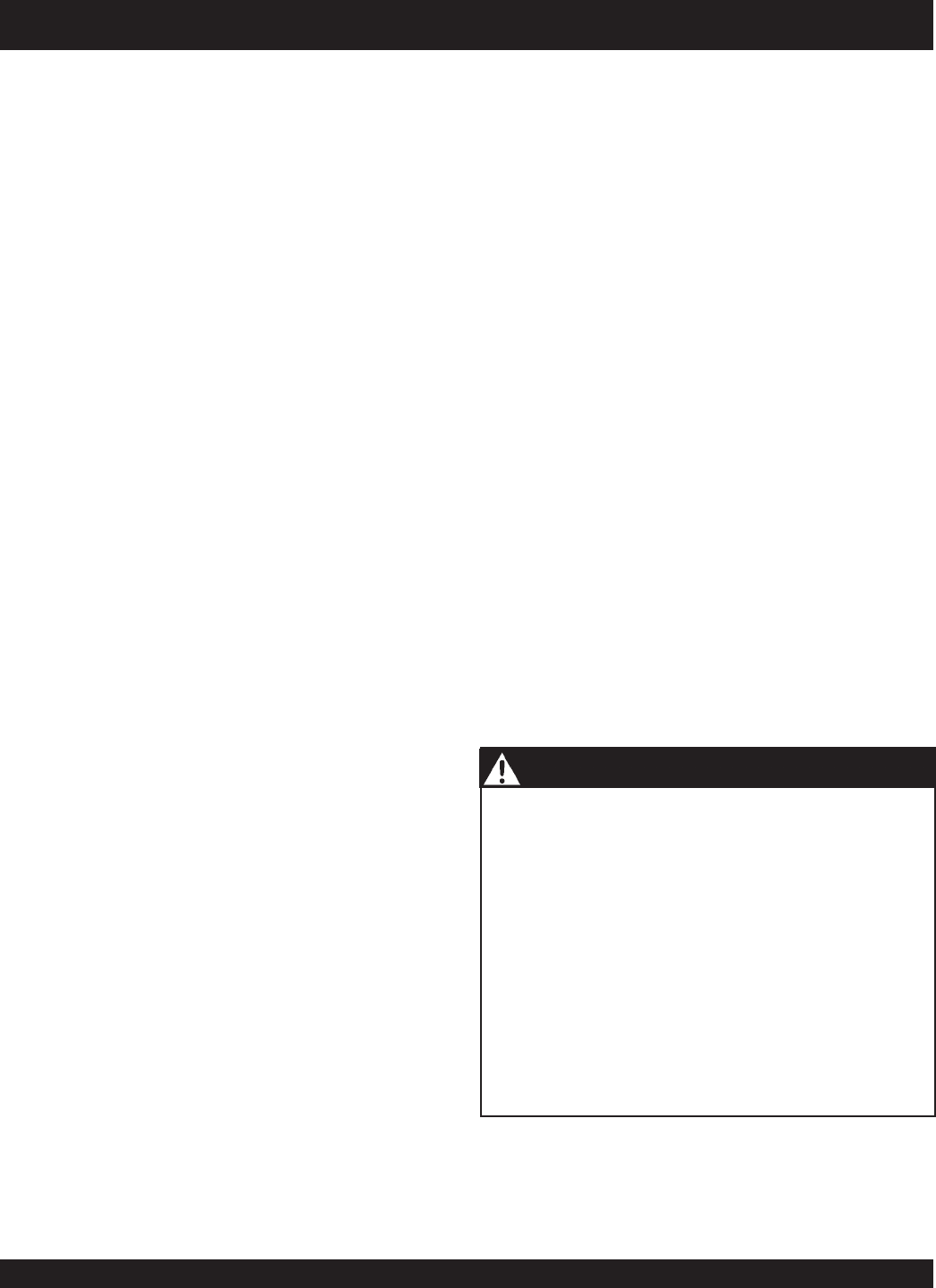
DRY PRIME PUMP — OPERATION AND PARTS MANUAL — REV. #3 (10/06/08) — PAGE 39
Tow Vehicle
The towing hitch attached to your tow vehicle must have a
capacity equal to or greater than the load rating of the trailer
you intend to tow. The hitch capacity must also be matched
to the tow vehicle capacity. Your vehicle dealer can provide
and install the proper hitch on your tow vehicle.
Suspension System
Sway bars, shock absorbers, heavy duty springs, heavy
duty tires and other suspension components may be required
to sufficiently tow the Dry Prime trailer and pump.
Brake Controller
For trailers equipped with electric brakes, the electric brake
controller is part of the tow vehicle and is essential in the
operation of the electric brakes on the trailer. The brake
controller is not the same as the safety breakaway brake
system that may be equipped on the trailer.
Side View Mirrors
The size of the trailer that is being towed and your state law
regulations determine the size of the mirrors. However, some
states prohibit extended mirrors on a tow vehicle, except
while a trailer is actually being towed. In this situation, de-
tachable extended mirrors are necessary. Check with your
dealer or the appropriate state agency for mirror requirements.
Heavy Duty Flasher
A Heavy Duty Flasher is an electrical component that may
be required when your trailer turn signal lights are attached
to the tow vehicle flasher circuit.
Electrical Connector
An Electrical Connector connects the light and brake
systems on the trailer to the light and brake controls on the
towing vehicle.
Emergency Flares and Emergency Triangle Reflectors
It is wise to carry these warning devices even if you are not
towing a trailer. It is particularly important to have these
when towing a trailer because the hazard flashers of your
towing vehicle will not operate for as long a period of time
when the battery is running both the trailer lights and tow
vehicle lights.
Safety Chains
If the coupler connection comes loose, the safety chains
can keep the trailer attached to the tow vehicle. With
properly rigged safety chains, it is possible to keep the tongue
of the trailer from digging into the road pavement, even if
the coupler-to-hitch connection comes apart.
Trailer Lighting (and Braking) Connector.
A device that connects electrical power from the tow ve-
hicle to the trailer. Electricity is used to turn on brake lights,
running lights, and turn signals as required. In addition, if
your trailer has a separate braking system, the electrical
connector will also supply power to the brakes from the tow
vehicle.
Breakaway System
If the trailer coupler connection comes loose, the breakaway
system can actuate emergency electric or surge brakes de-
pending on the type of actuator on the trailer. The breakaway
cable must be rigged to the tow vehicle with
appropriate slack that will activate the system if the coupler
connection comes loose.
Jackstand
A device on the trailer that is used to raise and lower the
coupler. The jack is sometimes called the “landing gear” or
the “tongue jack”.
An improperly coupled trailer can result in death or serious
injury.
DO NOT move the trailer until:
• The coupler is secured and locked to hitch;
• The safety chains are secured to the tow vehicle
• The trailer jack(s) are fully retracted.
DO NOT tow the trailer on the road until:
• Tires and wheels are checked;
• The trailer brakes are checked;
• The breakaway switch is connected to the tow vehicle;
• The load is secured to the trailer
• The trailer lights are connected and checked.
WARNING
TRAILER SAFETY GUIDELINES



